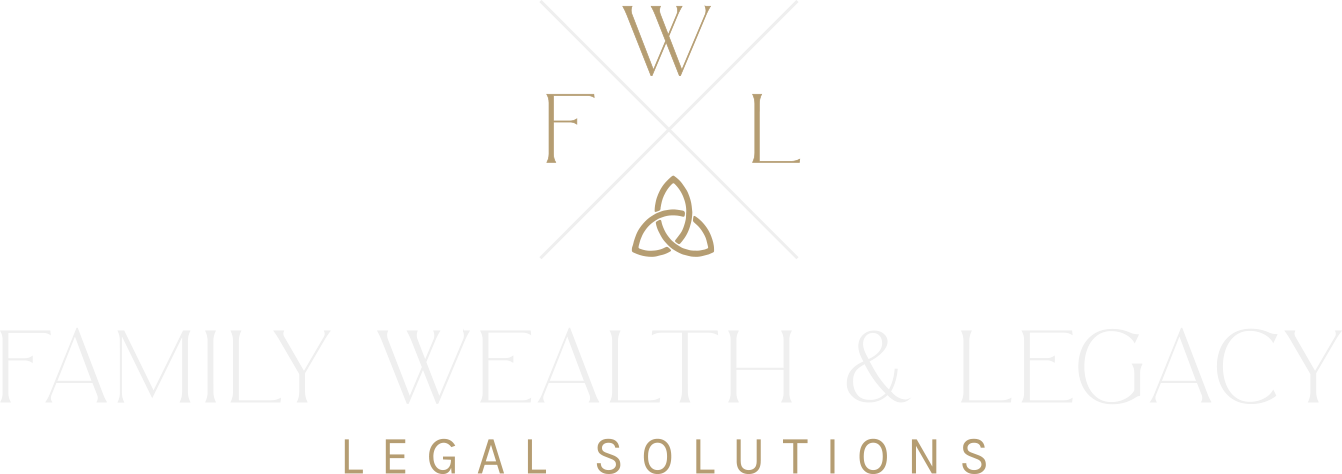The desire to make a difference doesn’t end when we’re gone. For many people, incorporating charitable giving into their estate plan makes them feel warm and fuzzy, while supporting the causes that are most near and dear to their heart. Yet, if done strategically, charitable giving can provide tax benefits for loved ones and begin building a lasting legacy for families.
Regardless of whether you want to establish:
- A scholarship fund (for the less fortunate in your community, future generations of your family, or a particular University);
- Support medical research (for a specific disease, organization, or local hospital – for example, Lurie’s Children’s Hospital, St. Jude’s, or my personal bias of Hinsdale Hospital because my daughter was born there);
- Animal shelters (local animal rescues or shelters – I love the West Suburban Humane Society); or
- To help your local community in any way you wish, churches, food banks, domestic violence shelters, homeless shelters, etc.
Charitable planning can maximize your impact while potentially providing tax benefits for your heirs. More importantly, you can begin to design and build a lasting legacy that will make a meaningful impact through charitable giving, regardless of whether you gift during your life, or after you’re gone.
Since this time of year inspires generosity and offers tax-saving opportunities, let’s explore how you can include strategic and effective charitable giving in your estate plan.
Exploring Strategies to Support Your Favorite Causes
When it comes to charitable giving through your estate plan, you have several options to consider. The key is finding the approach that best aligns with your values, goals, and overall estate planning strategy.
Effective Ways to Leave a Charitable Impact
- Direct Bequests: The simplest way to include a charity in your estate plan is through a direct bequest in your will, trust, or beneficiary designations. This allows you to specify a fixed dollar amount or percentage of your estate that will go to the charitable organizations you’ve chosen. Charitable bequests to qualified charities are tax-deductible and reduce estate tax liabilities.
- Qualified Charitable Distributions (QCDs): If you’re over 70.5 and don’t need your required minimum distributions (RMDs) from retirement accounts, consider a QCD. You can donate up to $105,000 in 2024 directly to a 501(c)(3) public charity, reducing your taxable income while supporting your favorite cause.
- Charitable Trusts: For larger estates, charitable trusts offer sophisticated ways to benefit both your heirs and the charities you care about. Options include charitable remainder trusts (providing income to beneficiaries before the remainder goes to charity) or charitable lead trusts (providing income to charity first, with the remainder going to your beneficiaries).
- Donor-Advised Funds (DAFs): A donor-advised fund allows you to contribute during your lifetime, recommend grants to charities over time, and involve loved ones in managing your charitable legacy. The DuPage Foundation is a great local organization that we are very familiar with regarding the management and ongoing oversight associated with a DAF.
- Family Foundations: If you have significant assets and want to govern their use for generations, a private family foundation offers control, flexibility, and opportunities for multi-generational education and involvement.
Understanding Smart Tax Efficient Philanthropy Options
Tax benefits shouldn’t be the sole reason for charitable giving, but they can help maximize the impact of your gifts. Proper planning can reduce estate and income taxes, allowing you to do more for the causes and people you care about. Something to consider and that I always ask charitably inclined clients is if they would rather celebrate and enjoy seeing their generosity in action by gifting during their lifetime, which may be more beneficial than waiting until their passing. For more information about charitable contributions and their tax benefits, visit IRS.gov’s Charitable Contributions Guide.
Maximizing the Benefits of Charitable Trusts and Funds
Using tools like charitable trusts, donor-advised funds, or family foundations can help structure your giving while ensuring it aligns with your financial and philanthropic goals. These strategies can also streamline the administration of your giving while providing additional tax advantages.
Making Your Philanthropic Goals a Family Affair
Charitable giving doesn’t just support meaningful causes; it can also help instill philanthropic values in your family.
- Family Discussions: Openly share your charitable intentions and the causes you’re passionate about with your loved ones.
- Collaborative Giving: Involve family members in decision-making for donor-advised funds or family foundations to inspire their philanthropic journey and instill those values in future generations.
- Educational Opportunities: Use your charitable plan to teach financial literacy, social responsibility, and the importance of giving back to your local community.
Practical Tips for Choosing the Right Charitable Organizations
When selecting organizations to support, research their mission, financial health, and impact. Decide whether to focus on national initiatives or local charities close to your heart.
Crafting a Tailored Plan for Long-Term Impact
At Family Wealth & Legacy Legal Solutions, we can help you develop a charitable giving strategy that aligns with your estate planning goals. This includes identifying causes important to you, selecting appropriate giving vehicles, structuring gifts for tax benefits, and involving future generations.
Start Building Your Legacy of Generosity Today
Charitable giving is a powerful way to create a legacy that extends far beyond your lifetime. By incorporating thoughtful philanthropy into your estate plan, you can ensure your generosity makes a lasting impact on your loved ones and the causes you hold dear.
How We Help You Create a Meaningful Legacy
At Family Wealth & Legacy Legal Solutions, we specialize in creating comprehensive estate plans that include charitable giving strategies tailored to your values and goals. Together, we’ll document your philanthropic wishes, maximize their impact, and ensure your plan reflects your vision.
Click here to schedule a complimentary 15-minute consultation and learn how we can help you design a lasting legacy to support the causes near and dear to your heart through charitable giving.


